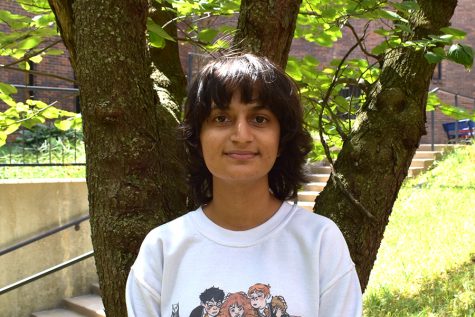One afternoon in late July, junior Joudi Kaziz and senior Ahmad Kaziz piled into their cousin’s car and caught a 13-hour flight from Chicago, Ill. to Qatar, their final destination being Istanbul, Turkey.
The entire family, including their mother and older sister, got a Polymerase Chain Reaction (PCR) test and vaccine preceding the flight, although COVID-19 regulations did not affect their trip once they had left the airport.
“The PCR was not that important when we left for Turkey, but on the way back it was, even if we were vaccinated,” Ahmad said. “People in Turkey, in general, wear masks more. After quarantine, a lot of people started going there so their cases went up. They have stricter regulations [than the US].”
Although the flight was 13 hours, both students felt that leaving the airport was like coming home. The siblings were born and raised in Saudi Arabia and spent their summers in Syria, their parents’ home country. They had heard from friends and family that Turkey was very similar to Syria, which was one of the main reasons they chose to go there.
“I visited Syria every summer when I was younger, but there’s a war there and it’s not stable,” Ahmad said. “I would always visit my grandparents’ houses. It was nice getting to see my family because I didn’t live there and I didn’t see them often.”
The narrow streets of Sultanahmet, Istanbul constantly bustling with a steady surge of people and traffic reminded Ahmad and Joudi of Syria.
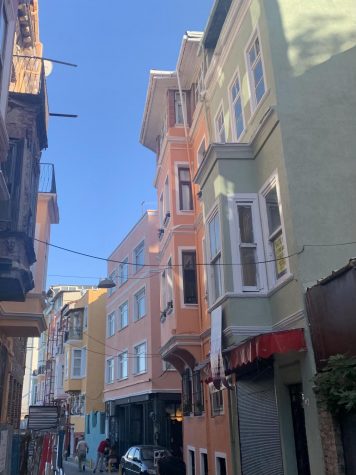
(Ahmad Kaziz)
“Syria had a lot of narrow roads with restaurants on the side and people waiting outside to try to get you to go inside, and people selling coffee on the side of the street who would just stop and talk to you,” Joudi said. “They would just start talking to you about the most random topics and go on talking to you forever.”
In Istanbul, they visited popular tourist attractions, including the Hagia Sophia, the Blue Mosque and the Topkapi Palace. Since English is not a common language in Turkey, the Kaziz’s had difficulty communicating with the locals, especially taxi drivers. Many times, they could not even communicate their hotel’s address, going instead to the Hagia Sophia and walking the short distance to their hotel.
“The places [we went to] had English names or pronunciations that [the locals] didn’t understand. We were trying to tell [the driver] to go to our hotel, and I showed him the location on my phone. But then he said, ‘oh, I don’t have my glasses,’” Joudi said. “I speak Arabic, and especially in the touristy areas, [shopkeepers] try to learn Arabic to lure you into their store, but not really anything that will help you.”
After the historic mosques and palaces of Istanbul, the family headed to the heart of Turkey. Joudi planned their trip to Cappadocia, situated in central Turkey, after discovering that it was a famous tourist spot. In this 2,000-year-old city, the family stayed in traditional hotels situated inside mountains, within an intricate and man-made cave system built in the Early Roman Era. These cave systems extended underground as well, leaving behind 26 underground cities.
“All the rooms were in a cave. People used to live in the caves, but obviously now they don’t anymore because they have houses. It was not like a normal hotel room, but they had power outlets. It was pretty modern,” Ahmad said. “[The underground city] was also part of the tour. We got to see how they used to live and store their food and where the people would sleep. It was interesting learning about different cultures and how people used to live.”
Most days in Cappadocia, the family woke up around 5 a.m. to watch the hot air balloons, which dot the horizon like clockwork every morning. In order to ride in one, their day started before the sun rose.
“We woke up at 3 a.m., they came to pick you up at 4 a.m. and it was fully dark outside. We went in this big bus, and since the roads were so narrow, the whole time we’re shaking and bouncing in our seat. One time, I looked out the window and there was an inch between me and the [building outside],” Joudi said.
The family was swept away from the city for the take-off, although the location changes daily depending on wind patterns. In the time it took to set up the 50-ft, 20-person balloon, the sun had already started to rise.
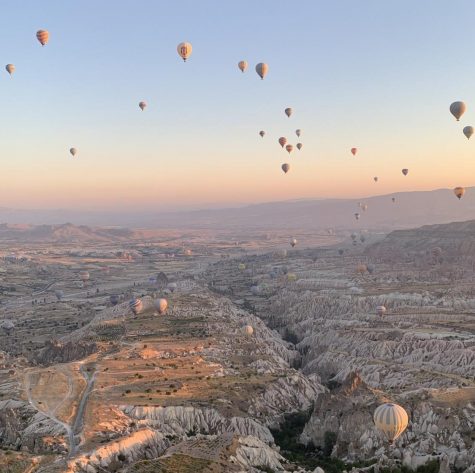
“The view, the sunrise, all the mountains, it looked like it wasn’t real. It was so far away and you looked over and it was just the horizon. It kept on going. It didn’t stop,” Ahmad said. “I was scared because we were so high up and we were just in a basket. My sisters were not scared at all.”
Although the family was almost 2,000 feet in the air, the most memorable part of the experience for both of the siblings was the landing. Just before, the passengers were asked to go into a landing position, kneeling down and holding onto the side of the basket. The passengers had to hold the position for a prolonged time period, as the wind’s direction did not allow them to land in the planned location.
“I thought it was going to slowly fall down to the ground and just sit down. I thought it was going to land calmly. They kind of just crashed the hot air balloon down,” Ahmad said. “It tipped over, and a bunch of people were running after the hot air balloon to jump up on the basket and pull it down so we didn’t flip over. They had us go in the landing position so we didn’t fly out or something when we were landing. But I didn’t expect it to almost flip the whole basket over. That caught me by surprise.”
The landing caught Joudi by surprise, but with much less alarm than her siblings.
“While we were landing, we just saw people running towards us on the ground, and the whole time, I was laughing so much. My siblings were really scared, but I was laughing the whole time,” Joudi said.
The vacation in Turkey lasted for 15 days, which made it more memorable for Joudi and Ahmad as they had more time to sightsee and participate in local activities.
“My favorite memory from the trip was definitely Cappadocia and how inviting and home-like everything felt, and I was sad when we had to leave,” Joudi said, “but I was ready to go home.”


![Ahmad and Joudi take a quick photo with their mother and older sister, Leena, during the hot air balloon ride. Leena lives in Dubai where she works as an Instagram influencer, and this was their first time seeing her in almost three years. “I was shocked to see her because I hadn’t seen her in so long. When we saw each other, we both kind of ran towards one another,” Joudi said. “She was in Cappadocia for the [music] festival because [a brand] reached out and invited her so that she can post about it.”](https://pwestpathfinder.com/wp-content/uploads/2021/09/6FC860B0-AA37-49A7-893C-8B166EC93A3F.jpeg)
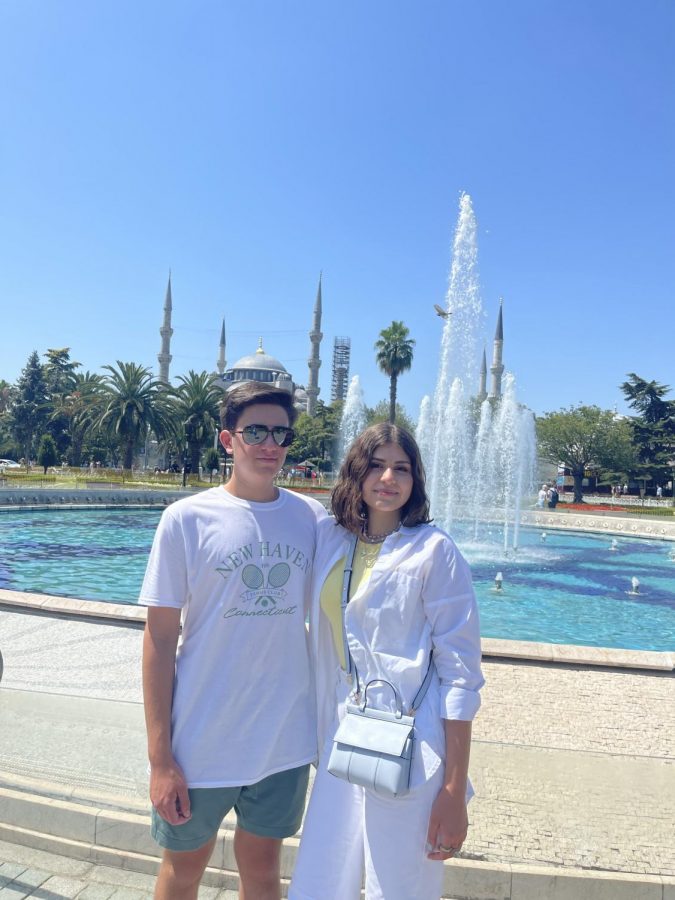
![Focused on providing exceptional service, sophomore Darsh Mahapatra carefully cleans the door of a customer’s car. Mahapatra has always believed his customers deserve nothing less than the best. “[If] they’re trusting us with their car and our service, then I am convinced that they deserve our 100 percent effort and beyond,” Mahapatra said.](https://pwestpathfinder.com/wp-content/uploads/2025/10/DSC_0018-1200x800.jpg)
![Sophomore Aleix Pi de Cabanyes Navarro (left) finishes up a soccer game while junior Ava Muench (right) warms up for cross country practice. The two came to Parkway West High School as exchange students for the 2025-2026 school year. “The goal for the [exchange] program is to provide opportunities for both Parkway students and our international exchange students to learn about other cultures, build connections and become confident, capable, curious and caring — Parkway’s Four C’s — in the process,” Exchange Program Lead Lauren Farrelly said.](https://pwestpathfinder.com/wp-content/uploads/2025/10/Feature-Photo-1200x800.png)

![Gazing across the stage, sophomore Alexis Monteleone performs in the school theater. The Monteleone family’s band “Monte and the Machine” has been releasing music since 2012, but Alexis started her own solo career in 2024 with the release of her first single, Crying Skies. “My whole family is very musical, [and I especially] love writing [songs with them],” Monteleone said.](https://pwestpathfinder.com/wp-content/uploads/2025/09/DSC7463-1200x798.jpg)
![Amid teaching a lesson to her AP Calculus BC class, Kristin Judd jokes alongside her students in their funny remarks. Judd has always enjoyed keeping the mood light in her classroom, along with on the volleyball court. “[I enjoy] that side talk where you see [or] overhear a conversation and chime in, or somebody says something funny,” Judd said.](https://pwestpathfinder.com/wp-content/uploads/2025/09/image-1200x730.jpg)
![Eyeing the ball, junior Ella McNeal poses for her commitment pictures at Clemson University. McNeal’s commitment comes after months of contact with top Division 1 soccer programs. “ It has taken a lot to get to where I am, but I know that [what] I've already been through is just the beginning, and I can't wait for what is to come,” McNeal said.](https://pwestpathfinder.com/wp-content/uploads/2025/09/IMG_4926-1200x900.jpeg)

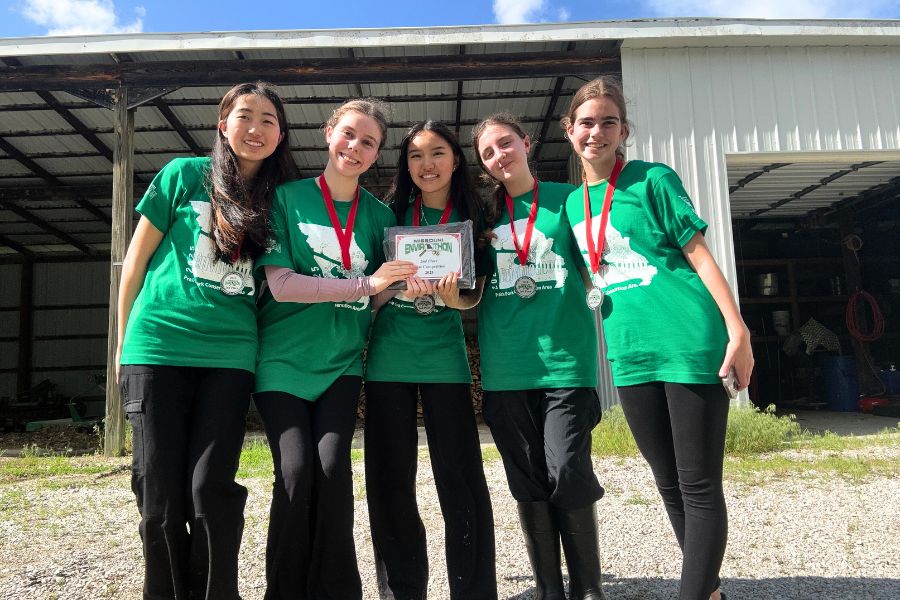
![Senior Adam Zerega stands with senior Dexter Brooks by farm equipment. Zerega often worked with friends and family on his farm. “I've been able to go to my family's farm since I was born. I [spend] at least three weekends a month [on the farm], so I'm there all the time,” Zerega said.](https://pwestpathfinder.com/wp-content/uploads/2025/04/IMG_4872-1200x900.jpg)
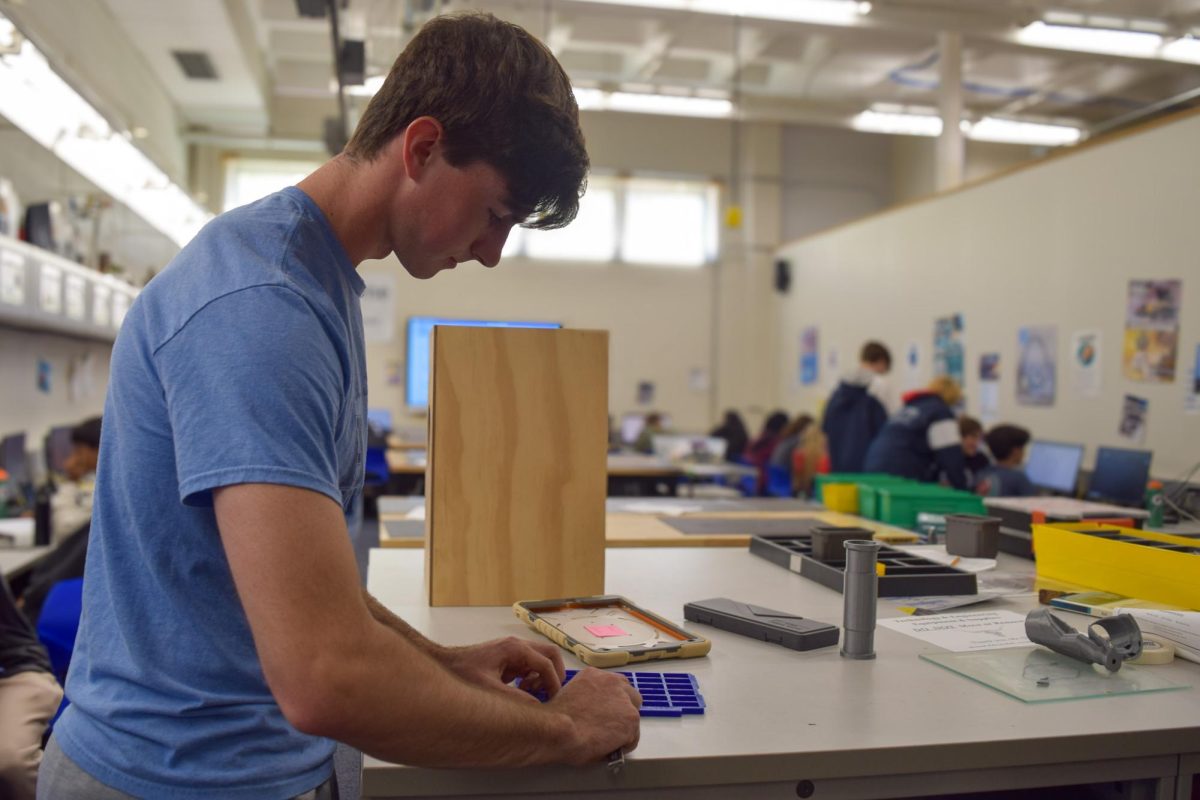
![After a thrilling point, senior Katie Byergo and junior Elle Lanferseick high-five each other on Oct. 8. With teamwork and camaraderie, Byergo worked together in the game against Lafayette High School. “[Byergo’s] is really positive with a good spirit,” Lanferseick said. “I set her [the ball] and she hits it [or] gets the kill.”](https://pwestpathfinder.com/wp-content/uploads/2025/10/DSC_9349-1-e1761159125735-1200x791.jpg)
![Leaning on the podium, superintendent Melissa Schneider speaks to Parkway journalism students during a press conference. Schneider joined Parkway in July after working in the Thompson School District in Colorado. “My plan [to bond with students] is to get things on my calendar as much as possible. For example, being in [classes] is very special to me. I am trying to be opportunistic [meeting] kids [and] being in [the school] buildings. I have all the sports schedules and the fine arts schedules on my calendar, so that when I'm available, I can get to them,” Schneider said.](https://pwestpathfinder.com/wp-content/uploads/2025/09/IMG_5425-1200x943.jpeg)

![Leaping through the air, senior Tyler Watts celebrates his first goal of the season, which put the Longhorns up 1-0 against the Lafayette Lancers. Watts decided to play soccer for West for his last year of high school and secured a spot on the varsity roster. “[Playing soccer for West] is something I had always dreamed of, but hadn’t really had a good opportunity to do until now. It’s [really] fun being out [on the field], and I’m glad I decided to join the team. It’s just all about having fun with the boys and enjoying what time we have left together,” Watts said.](https://pwestpathfinder.com/wp-content/uploads/2025/09/DSC_1951-1200x855.jpg)

![Junior Fiona Dye lifts weights in Strength and Conditioning. Now that the Trump administration has instituted policies such as AI deregulation, tariffs and university funding freezes, women may have to work twice as hard to get half as far. "[Trump] wants America to be more divided; he wants to inspire hatred in people,” feminist club member and junior Clara Lazarini said.](https://pwestpathfinder.com/wp-content/uploads/2025/05/Flag.png)
![As the Trump administration cracks down on immigration, it scapegoats many immigrants for the United States’ plights, precipitating a possible genocide. Sophomore Annabella Whiteley moved from the United Kingdom when she was eight. “It’s pretty scary because I’m on a visa. When my visa expires next year, I’m not sure what’s going to happen, especially with [immigration] policies up in the air, so it is a concern for my family,” Whiteley said.](https://pwestpathfinder.com/wp-content/uploads/2025/05/DSC_0077-7copy.jpg)
![Shifting global trade, President Donald Trump’s tariffs are raising concerns about economic stability for the U.S. and other countries alike. “[The tariffs are] going to pose a distinct challenge to the U.S. economy and a challenge to the global economy on the whole because it's going to greatly upset who trades with who and where resources and products are going to come from,” social studies teacher Melvin Trotier said.](https://pwestpathfinder.com/wp-content/uploads/2025/05/MDB_3456-1200x800.jpg)

![Pitching the ball on Apr. 14, senior Henry Wild and his team play against Belleville East. Wild was named scholar athlete of the year by St. Louis Post-Dispatch after maintaining a high cumulative GPA and staying involved with athletics for all of high school. “It’s an amazing honor. I feel very blessed to have the opportunity to represent my school [and] what [it] stands for,” Wild said.](https://pwestpathfinder.com/wp-content/uploads/2025/05/unnamed-6-1200x714.jpg)
